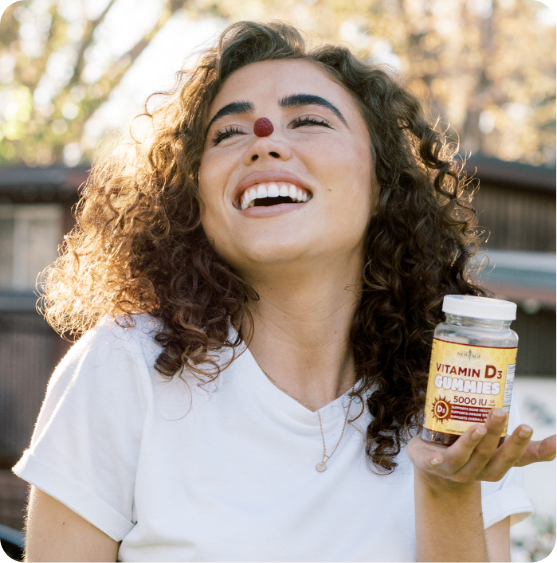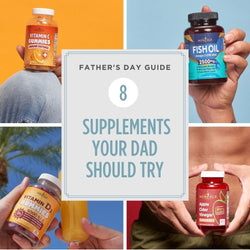
The Basics
There are numerous benefits of omega-3 fatty acids. They include protecting against neurodegenerative diseases, boosting immune system functions, reducing inflammation, reducing lactic acid build-up caused by intense exercise, reducing anxiety and depression, improving eye health, improving heart health, and increasing fertility.
ALA (Alpha-linolenic acid) omega-3 fatty acids are often extracted from various seeds and nuts. However, the essential omega acids-docosahexaenoic acid (DHA) and eicosapentaenoic acid (EPA) are predominantly found in seafood.
Naturally, seafood is the most potent and recommended source of omega-3. Ultimately, the omega-3s are extracted from seafood and distilled to create fish oil or krill oil.
So which one should you choose? Let’s compare the two options and find out.
Sources of Omega 3
Although both fish oil and krill oil offer essential omega-3s, their overall nutrition differs. For starters, they are extracted from very different sources.
Fish oil is generally extracted from ‘oily’ or ‘fatty’ fish such as sardines, salmon, tuna, anchovies, cod, and halibut. At NEW AGE, we use wild herring & Alaskan Pollock for our fish oil. On the other hand, krill oil doesn’t come from fish, but instead comes from crustaceans known as Antarctic krill.
Absorption
When purchasing omega-3 products, it is recommended to check their absorption rates and the ideal absorption rate is above 80%.
Some researchers have found that DHA and EPA found in krill are more easily absorbed into the body compared to those found in fish oil. Fatty acids found in krill oil capsules are composed of phospholipids, while those in fish oil capsules are composed of triglycerides. The reason as to why krill oil capsules have a better absorption rate is because your body can use and absorb phospholipids into the bloodstream more efficiently than triglycerides.
Nutrients
Even though both Krill Oil Capsules and fish oil capsules have high levels of the DHA, EPA & omega-3 nutrients, krill oil has other essential nutrients too. Our krill oil capsules also contain high levels of vitamins D, E, and A as well as choline and phospholipids.
In addition, krill oil contains the antioxidant astaxanthin. This antioxidant helps minimize the oxidation in both fish oil and krill oil, thus lengthening their shelf lives. Even though manufacturers can add astaxanthin to fish oil capsules, it is part of the natural makeup within the krill oil capsules, providing a product with less additives.
|
EPA and DHA Percentage in Omega-3s
|
|
Fish Oil
|
Krill Oil
|
|
- Higher in omega 3 fatty acids
- Extracted from sardines, wild herring, Alaskan Pollock or anchovies; generally, fish oil contains 80% fat
- High in DHA. This is the omega-3 fatty acid that supports brain health.
|
- Naturally contains astaxanthin.
- A percentage of fat stops the destabilization of the oil. The krill capsules contain 5% fat.
- Lower in DHA and in the overall omega-3 fatty acids.
|
Sustainability
Overfishing has created an ecological disaster. According to the United Nations, 29% of fish stocks are currently overfished & depleted. 61% are fully exploited, and 10% are under fished. On the other hand, krill fishing is regulated by the Commission for the Conservation of Antarctic Marine Living Resources (CCAMLR). The annual krill catch is 0.3% of the unexploited krill biomass, according to CCAMLR. This indicates that krill fishing is below established dangers, which makes it a more sustainable source to obtain omega-3.
|
Sustainability
|
|
Fish Oil
|
Krill Oil
|
|
- 9% of fish stocks globally are overexploited
- 61% are fully exploited
- 10% are under-fished
|
- The annual krill fishing is 0.3% of the unexploited krill biomass, which is well below the recommended danger levels.
- More heavily regulated.
|
Research
Researchers have studied fish oil since the 1950s and numerous scientific research efforts have been conducted. As of 2020, scientific journals such as PubMed have noted that there are 34,160 fish oil articles while those of krill oil are only 242. This means that there has been far more research conducted on fish oil than krill oil.
Dosage
In case you choose to supplement with either fish oil or krill oil, the amount you take will depend on your overall health goals.
For instance, if you choose the fish oil route, you can take up to 1 g per day to maintain your general health. On the other hand, it is recommended to take 3 g of krill oil per day to maintain your general health.
As a general rule-of thumb, 3,000 mg of fish oil is considered safe for most healthy adults. However, according to the National Institute of Health, men can take 1,600 mg and women and 1,100 mg of omega-3.
Benefits for Pregnancy
DHA and EPA are crucial for normal fetal development. DHA accumulates in the fetus’ brain during the last trimester of pregnancy. However, most pregnant women have a deficiency in the Recommended Dietary Intake (RDI) for these fatty acids. Supplementing with DHA and EPA during pregnancy is beneficial during the child’s infancy and as they grow up. The World Health Organization (WHO) advises a person to take a combination of 200 mg DHA and 300 mg EPA during pregnancy.
The DHA and EPA dosage also varies depending on a child’s age. Therefore, infants below one year should take 500 mg, then gradually increase the dosage as they grow.
Potential Risks and Side Effects of Fish Oil and Krill Oil
Both fish oil and krill oil are considered safe when taken in their recommended dosages. It is advisable to take most supplements with a meal to minimize potential side effects like an upset stomach.
Those with a shellfish allergy should avoid these supplements. Fish oil and krill oil can also impact your blood sugar levels, lower your blood pressure, or increase your risk of bleeding.
It is recommended to consult a health practitioner before taking supplements, but especially if you:
- Have hypoglycemia, diabetes, or are taking medications that affect your blood sugar levels
- Are taking blood thinners or have a bleeding condition
- Have low blood pressure, or you are taking medication that lower blood pressure
- Nursing, pregnant or trying to be pregnant













I am Searching for Fish Oil and luckily landing on your website they are all very useful information and I ordered fish oil supplement on https://www.vitamindeck.com.pk/
Nina Ahuja •